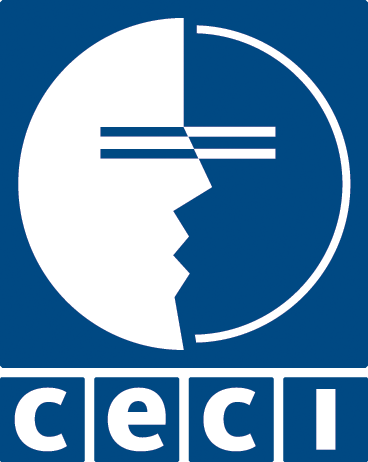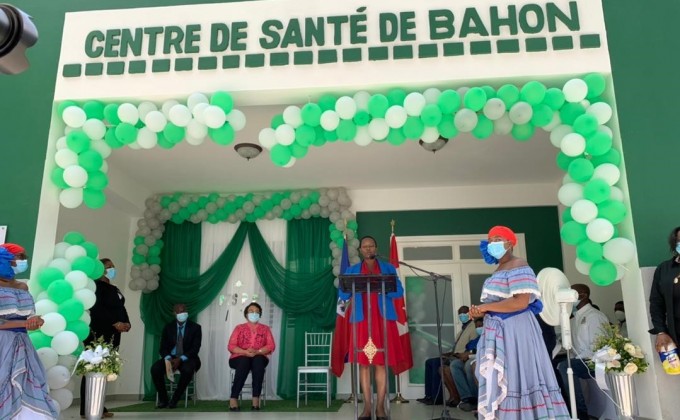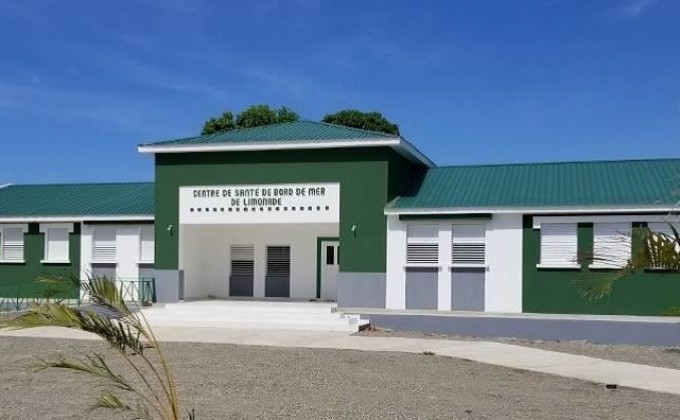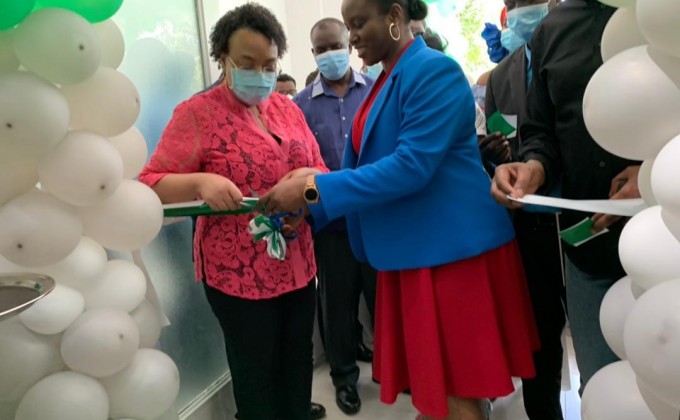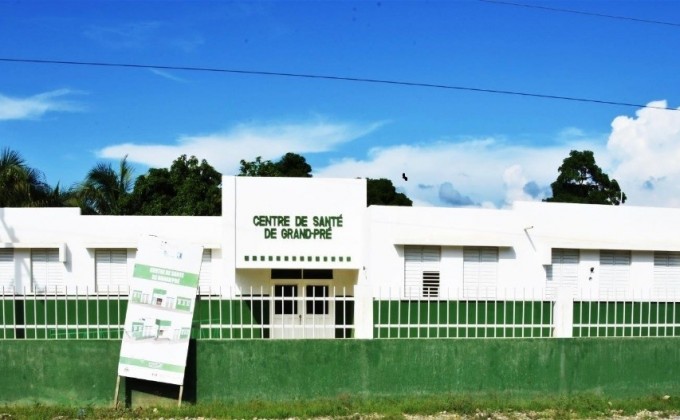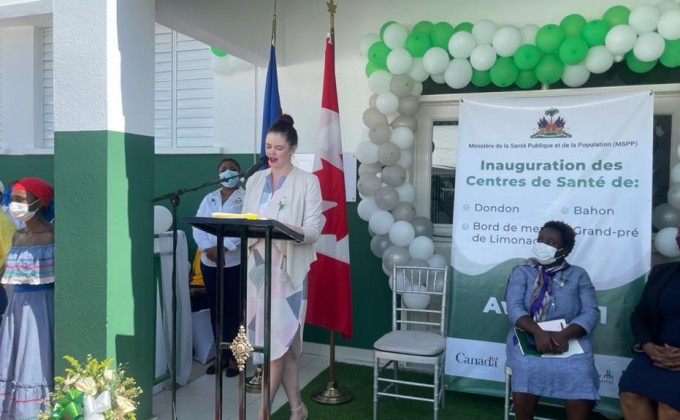Original content published on the website of the International Health Unit of Université de Montréal
Together, these three centres will serve a population of 105,775 inhabitants, which until then only had a very limited access to basic health services.
On April 22 and 23, Haiti’s Ministry of Public Health and Population (MSPP) inaugurated three health centres built as part of the Project in Support of the Mother-Child Health Continuum (ACOSME). Held in the presence of the First Lady of the Republic of Haiti, the Minister of Health and the representative of the Embassy of Canada, these three ceremonies attested to the success of international cooperation in the construction and commissioning of the three health centres.
A Victory for International Cooperation and a Tribute to Female Leadership
Since 2016, the ACOSME project has been working with the MSPP and supporting the Northern Health Department at all levels of the health pyramid in several communes of Haiti’s Nord department. In this context, the health centres of Bahon, Grand Pré and Bord de Mer de Limonade were entirely built and equipped by the ACOSME project, with financial support from Canada, and were then powered and staffed by the MSPP.
In a context made especially difficult by the current Covid-19 pandemic, the construction and commissioning of these three health centres is an example of successful collaboration and engagement by all stakeholders. Their inauguration thus reminds us of the importance of international cooperation for the improvement of sanitary conditions in Haiti and throughout the world.
The event also represented a tribute to the contribution of women in these successful initiatives. With women involved at all levels of the project, we are reminded of their essential role in society. From construction and community mobilization, especially through the Female Health Services Users Committees (CFU), to the participation of the First Lady of the Republic and the Minister of Health in the inaugurations, this project highlights the strength and leadership of Haitian women.
Three brand new centres, a sign of hope for the population, for women and children
Designed to serve the communes of Bahon, Limonade and Quartier Morin, the three health centres were built and equipped according to the highest standards prescribed by the MSPP and in compliance with Canadian standards. In addition to general consultation services and laboratory tests, each centre will offer maternal and child health services (antenatal clinic, family planning, vaccination and nutritional monitoring), while childbirth will be taken in charge by the health centres of Bahon and Bord de Mer de Limonade. Each centre also offers observation rooms for patients and 24-hour emergency first aid.
Together, these three centres will serve a population of 105,775 (52,064 women and 53,771 men), which until then only had limited or sporadic access to the health services now available. The commissioning of these health centres represents a considerable increase in the availability of healthcare within the three communes, and a real hope of improving the population’s general health. With the new maternity services offered in Bahon and Limonade, as well as the family planning services offered in Quartiers Morin, these centres will be especially focused on improving the health of mothers and newborns, thus affecting the whole of society.
“The Northern Health Department is deeply satisfied with the actions carried out through the ACOSME Project. I also wish to highlight the earnest collaboration of the whole team at the Northern Health Direction, which has made great achievements become possible through a shared vision of a stronger Haitian health system. As Minister Marie Greta Roy Clément recalled, such achievements demonstrate the importance of this type of cooperation between Haiti and Canada.” Dr. Rose Francesse Pierre, leader of the ACOSME project
A few words about the ACOSME project
Launched in 2016 by the consortium formed by the Unité de santé internationale (USI) and the Centre for International Studies and Cooperation (CECI), and carried out in collaboration with the Haitian Ministry of Public Health and Population, the ACOSME project aims to contribute to the reduction of maternal and infant mortality in Haiti, particularly in the target areas of the Nord Department.
The project is structured around three components. The first one is about improving the delivery (supply and quality) of a continuum of essential services to meet the needs and rights of mothers, pregnant women, newborns and children, including family planning. The second one aims to improve the use of health services by women, their families and youth. The last component aims to make the Canadian population more aware of the issues affecting the health and rights of mothers, pregnant women, newborns and children under 5 in Haiti.
Proyectos
Presencia
El CECI
Implicarse
Informarse
Donar
Contáctenos
Enlaces externos
